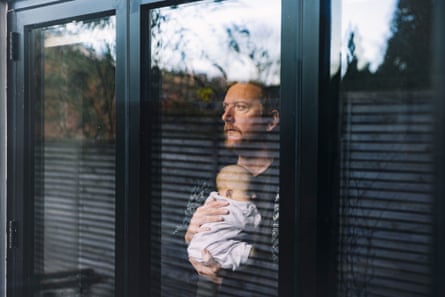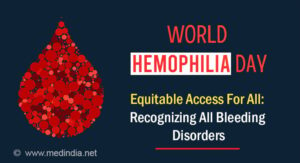‘I didn’t even know males may get it’: the hidden impression of male postnatal melancholy | Postnatal melancholy
[ad_1]
Seventy hours into the delivery of his first youngster, Lewis was informed that his spouse wanted to be rushed into surgical procedure for an emergency C-section. The being pregnant had been easy and filled with nervous pleasure, however, as disaster offered itself, Lewis discovered himself unprepared.
“I nonetheless can’t discuss it correctly now, 5 years on,” the 35-year-old says. “It was horrific. I didn’t know what was occurring and I couldn’t do something besides stand by and watch as my spouse and my child’s lives have been doubtlessly at risk. The entire thing was a blur, however it felt like it might go on for ever.”
An hour or so later, his son was delivered. His spouse was superb and the child was wholesome. But the reminiscence of the traumatic delivery saved replaying in Lewis’s thoughts, lengthy after the household returned dwelling. “My spouse was nonetheless recovering from main surgical procedure, so I used to be left alone with my youngster, however I didn’t really feel that particular connection that everybody talks about,” he says. “I simply wished to ensure my spouse was OK. My child grew to become one thing I needed to take care of.”
Lewis discovered himself going by means of the motions of parenting – sleeping fitfully every evening, altering nappies consistently, trying on whereas mom and youngster bonded by means of breastfeeding – however he struggled to attach together with his youngster. He started to really feel deeply unhappy, as if there is likely to be one thing flawed with him; so many different new fathers appeared enamoured of their infants.

As he later came upon, he was experiencing the signs of postnatal melancholy (PND), which stays largely unexplored in males. PND is nicely established as a temper dysfunction that impacts girls, with between 10% and 15% of moms thought to expertise it. Within the UK, new moms are monitored for PND throughout routine NHS well being visits. New fathers, nonetheless, don’t have any entry to standardised care or routine checkups on the NHS, regardless of analysis discovering that as much as 10% of them exhibit signs.
“Each mother and father are equally prone to psychological well being challenges throughout and after delivery,” says Dr Sharin Baldwin, the medical tutorial lead for nursing on the London north west college healthcare NHS belief. “Current years have seen caring tasks develop into shared and there may be an expectation that dads should be extra concerned. That mixture can create extra strain on males who wish to be good dads, however may really feel as in the event that they’re not ok or that they will’t burden their companions with their very own worries.”
Baldwin, a well being customer, is without doubt one of the few researchers to review the prevalence of postnatal melancholy in males. Her curiosity within the matter started when her husband informed her how he felt excluded by youngster well being companies after the delivery of their first youngster, with each bit of literature or assist for infants seemingly naming solely “moms and infants”. She started a three-part New Dad Examine in 2016, interviewing 21 males from totally different ethnicities and backgrounds about their experiences of getting kids.
She discovered that plenty of themes tied them collectively. “Plenty of the lads spoke about their exhaustion with having to return to work and nonetheless care for his or her kids after they have been at dwelling, in addition to the issue in being separated from them,” she says. “There have been additionally issues raised about expectations not matching with actuality, like dads being stunned that their accomplice may battle with breastfeeding after which feeling as in the event that they weren’t capable of assist. Finally, their points may not really feel as necessary because the birthing accomplice’s and they also usually neglect their very own wants.”
Lewis felt conflicted when he went again to work after two weeks of parental depart. “The workplace was actually tiring, however I wanted the break from being at dwelling,” he says. “I felt so responsible after I obtained again, for lacking out, in addition to typically relieved. I didn’t wish to make life more durable for my spouse by telling her.” Nonetheless, she seen his apathy and his fluctuating temper; she inspired him to hunt assist. “She informed me that if I didn’t kind this out now it might have an effect on our son’s life and our relationship,” he says. “She didn’t need me to work myself to the bone and never be current any extra.”
After being placed on a ready listing for NHS counselling, Lewis determined to pay for personal classes in order that he may begin instantly. “Just a few months in, I started to make sense of my emotions and realise that the delivery had been laborious for each of us,” he says. “It actually helped having the ability to discuss it and the burden lifted. I may start to really feel unconditional love for my boy. I want I had identified earlier that, although there is likely to be an absence of connection initially, it might come.”
Baldwin says PND can have an effect on males who’ve adopted kids, in addition to these in same-sex {couples}; there will be an expectation to dad or mum with out grievance after going by means of a prolonged adoption or surrogacy course of. “Assist is absolutely necessary,” she says. “If males don’t have a social community inside which they will speak or share their emotions, they could really feel minimize off after which issues can worsen.”
When James, 38, grew to become a father, he felt extraordinarily remoted. After he and his accomplice had gone by means of two unsuccessful rounds of IVF and begun to look into adoption, she grew to become pregnant naturally in 2019 and gave delivery to their “miracle child” on the top of the Covid pandemic. “The lockdowns meant that we have been nearly totally alone, which grew to become actually laborious,” he says. “We had gone by means of a lot to have a baby and I used to be so excited for her arrival that I wasn’t anticipating how robust it is likely to be. I felt terrible.”
Sleeping solely 4 or 5 hours an evening, James grew to become deeply affected by his daughter’s screams, anticipating their arrival and typically listening to noises when there have been none. “It felt like there was no escape, particularly since we couldn’t even actually go outdoors,” he says. “Everybody else was additionally having their very own tough experiences of Covid, so there wasn’t a lot area to share how I used to be feeling. I saved every thing inside and started to dread the lengthy nights.”
Ian Coleman, a therapist with the Counselling Listing, describes the “doom loop” that he encounters with new fathers who come to him for assist. “Males can have these historically masculine notions of needing to manage, which implies they don’t discuss their emotions after which they really feel guilt at not doing nicely, which makes the melancholy worse,” he says.
“Caring for your self will be seen as egocentric, however it’s crucial. Males usually don’t have a roadmap for fatherhood and they may not wish to repeat how their very own fathers have been, in order that they want perspective to grasp that their lives are objectively tough in these moments.”
James says his father was largely absent, busy at work, when he was rising up. He was decided to be extra palms on together with his daughter, even when he was struggling. “I didn’t even know males may get postnatal melancholy, however because the lockdowns lifted and I reconnected with my family and friends, I requested the opposite dads I knew about their experiences and so they started telling me how laborious it had been for them, too,” he says.
The strain James had been feeling started to subside and he felt as if he may dad or mum on his personal phrases. “Trying again now, I can’t imagine there isn’t extra consciousness in regards to the subject and that there aren’t extra sources obtainable, because it appears so frequent,” he says.
The PND help charity Pandas has seen its personal Fb group for brand spanking new fathers develop to 800 members because it was established in 2020. There was a “sluggish however regular improve” in individuals reaching out to its help companies particularly for males, says Annie Belasco, who runs the charity. She says the psychological well being of latest dads is commonly ignored. “With 25% to 50% of fathers experiencing nervousness or melancholy when the mom additionally has a perinatal psychological sickness, the demand will solely develop.”
Baldwin agrees, noting the necessity for extra sources. “We’d like nationwide steerage to evaluate fathers routinely. Well being visiting numbers in England have dropped by 40% since 2015 and, with this disinvestment, we battle to determine fathers who want extra help,” she says. “Between 8% and 10% of fathers may expertise PND, however these are solely those that we find out about. The true determine may very well be greater.”
As analysis into males’s psychological well being develops, with research discovering that fathers undergo hormonal modifications after delivery, it appears clear that consciousness of the realities of fatherhood must be elevated. The stigma remains to be prevalent – as evinced by the truth that every man I spoke to about their experiences didn’t wish to share their full identify.
“It’s tough to confess that one thing as pure as fatherhood has been so laborious for you, however it feels necessary to do it,” Lewis says. “Us dads have to take care of ourselves, in addition to our companions and youngsters.” 5 years after that emergency C-section, Lewis’s son has began college and Lewis and his spouse have had one other youngster. “I really like them each so deeply,” he says. “Despite the fact that it has been actually robust at factors, they’re the most effective components of my life.”
Some names have been modified
[ad_2]
Source_link




